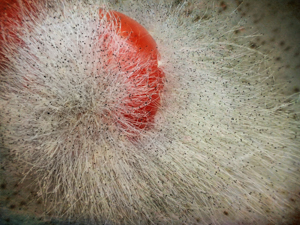Alongside Purusha Sukta (10.90), the Nasadiya Sukta (10.129) is one of the most famous Suktas of the Vedas. Known as the Creation Hymn, its fourth mantra says,
In the beginning, there was the disturbance of desire, from which sprung the first seed, which was born of the mind. Sages, searching in their hearts, realised the wisdom of the connection between existence and non-existence.
The creation the Nasadiya Sukta discusses is often believed to be the origin of the universe. However, 10.129.4 does not refer to any ordinary creation but, rather, the illusion of duality. This is attributed to desire in the mind – the first ‘seed’ of ignorance which gives the impression that we are separate. Before this disturbance, there was nothing to realise and no one to know because there was no appearance which was taken to be real as separate from the Self or Brahman. Continue reading

